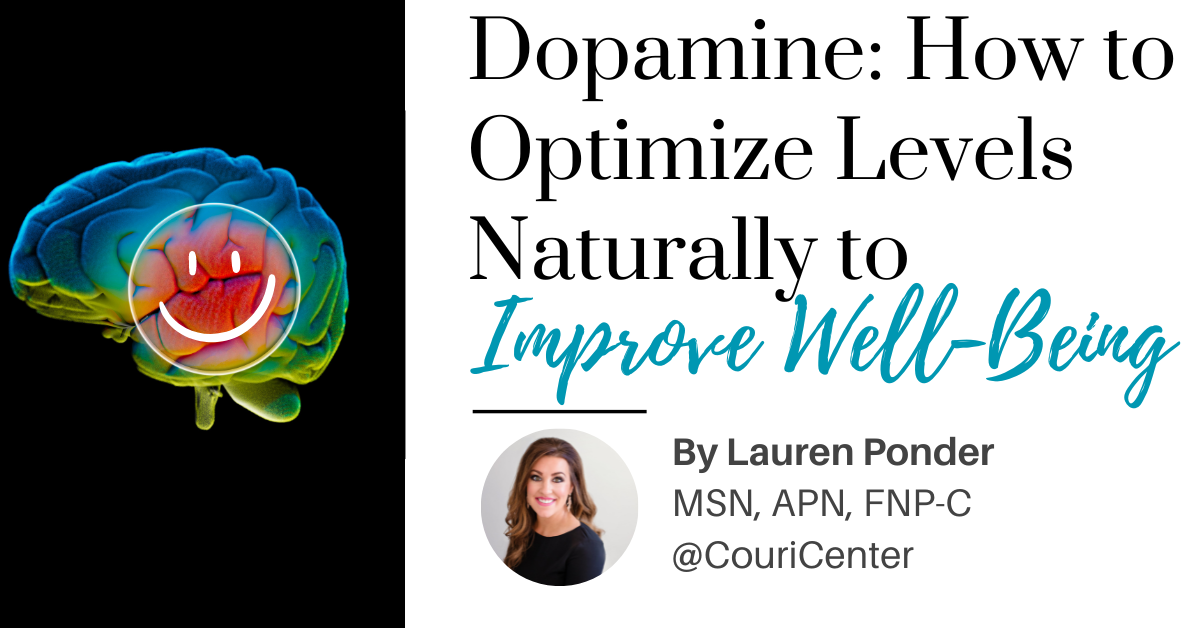
Summary
In this insightful article, Advanced Practice Registered Nurse, Lauren Ponder, delves into the world of dopamine—the brain's "feel-good" chemical—and its crucial role in regulating mood, motivation, and pleasure. By understanding how dopamine works, we can optimize its levels naturally to improve overall well-being. Lauren emphasizes the importance of avoiding behaviors that provide quick dopamine spikes, such as excessive use of drugs, social media, or video games, as they condition us to seek instant gratification. Instead, she shares six powerful tools to promote a steady increase in dopamine levels. These include exercising, cold exposure, embracing a growth mindset, prioritizing proper sleep, following a nutritious diet, and getting adequate sunlight. By adopting these strategies, readers can create a positive cycle of motivation, mood enhancement, and cognitive performance, leading to a more fulfilling and balanced life.
The Power of Dopamine in Regulating Well-Being
Dopamine is a neuromodulator, a chemical released by the brain, most notable for its intimate involvement in regulating the feelings of reward/pleasure, mood, and motivation. It is sometimes referred to as the ‘feel-good’ chemical and can either increase or decrease the activity of other neurons, directly impacting cognitive and physical performance. When dopamine levels are inadequate, it can cause a decreased sense of well-being, feelings of depression, decreased cognitive function, suppressed motivation, inhibited physical movement, decreased libido, and increased cravings. Optimizing dopamine levels is crucial to maintaining a persistent state of motivation, overcoming procrastination, and enhancing mood and cognition.
The Impact of Inadequate Dopamine Levels
There are several different tools we can use to optimize our dopamine levels to ensure consistent feelings of well-being and motivation. The first tool is avoiding, eliminating, or reducing the behaviors that cause “cheap dopamine.” Cheap dopamine is anything that causes a significant dopamine spike quickly, such as drugs, medications, social media, video games, etc. This conditions our behavior to seek more of the quick fix and makes it harder for us to do anything that doesn’t cause such a high spike or something that takes longer to achieve. Instead, focus on behaviors that promote a steady increase in dopamine. Consider incorporating the following tools into your lifestyle:
Tools for Natural Dopamine Optimization
- Exercise: Both aerobic and weight lifting increases dopamine release.
- Cold exposure: Taking cold showers, doing ice baths, and intentionally exposing yourself to external cold (Sramek et al., 2000).
- Growth mindset: The ability to access pleasure from effort. This is done by shifting our focus from an end goal that rewards us and instead learning to access the rewards from the actual effort and doing. This growth mindset will cause an increase in baseline dopamine long after completing the activity (Lerner et al., 2021).
- Proper Sleep: Getting sufficient sleep restores your dopamine reserves. Non-sleep deep rest (NSDR) can increase baseline levels. Both sleep and NSDR can increase baseline levels (Walker, 2017).
- Good nutrition: Intermittent fasting and avoiding high-sugar foods are linked to regulating dopamine’s healthy release. Intermittent fasting attaches dopamine release with the effort and strain that naturally occurs with fasting as opposed to the dopamine release that occurs when eating something sugary or highly processed. Dopamine always wants more dopamine (Dunigan and Roseberry, 2022).
- Adequate sunlight: Increases dopamine receptor availability compared to those with low sunlight exposure (Tsai, et al., 2011).
Understanding the role of dopamine in our well-being and learning how to optimize its levels naturally can impact our lives. Engaging in activities that promote steady dopamine release and avoiding those that provide quick and fleeting rewards can cultivate lasting motivation, improved mood, and enhanced cognitive function. Empower yourself with tools and strategies to unlock a more fulfilling life. The Couri Center is accepting new patients, and we are here to guide and support you on your journey to better health.
Lauren Ponder, MSN, APN, FNP-C, Couri Center
DISCLAIMER: The information provided on this website is intended for general informational purposes only and is not intended to be a substitute for professional medical advice, diagnosis, or treatment. The information provided is current as of the date of publication or last review, but medical knowledge is constantly evolving, and the information may become outdated over time.
References:
Dunigan, A. and Roseberry, A. (2022). Actions of feeding-related peptides on the mesolimbic dopamine system in regulation of natural and drug rewards. Addiction Neuroscience 2, 2772-3925.https://doi.org/10.1016/j.addicn.2022.100011.
Tsai HY, Chen KC, Yang YK, Chen PS, Yeh TL, Chiu NT, Lee IH. Sunshine-exposure variation of human striatal dopamine D(2)/D(3) receptor availability in healthy volunteers. Prog Neuropsychopharmacol Biol Psychiatry. 2011 Jan 15;35(1):107-10. https://doi: 10.1016/j.pnpbp.2010.09.014
Lerner, T.N., Holloway, A. L., Seiler, J.L. (2021). Dopamine, updated: Reward prediction error and beyond.
Current opinion in neurobiology. 67, 123-130. https://doi.org/10.1016/j.conb.2020.10.012.
Liu, C., Goel, P. & Kaeser, P.S. Spatial and temporal scales of dopamine transmission. Nat Rev Neurosci 22, 345–358 (2021). https://doi.org/10.1038/s41583-021-00455-7
Šrámek, P., Šimečková, M., Janský, L. et al. (2000). Human physiological responses to immersion into water of different temperatures. Eur J Appl Physiol 81, 436–442. https://doi.org/10.1007/s004210050065
Walker, M. (2017). Why we sleep. Scribner.
